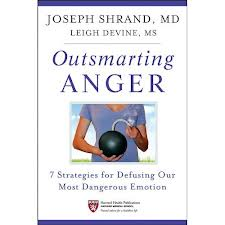Starting Your Writing Career As A Physician

A pitch for the Harvard Writers Course for Physicians...
If you are reading this, you are probably interested in writing. You may be formulating an idea or completing a manuscript. You may have published or are hoping to. You probably started out like me: eager to write, but not knowing what to do with a finished piece.
A few years ago I started writing a book. Once I thought it was finished, I sent it off to a few publishers. Luckily my narcissism was intact as I got one polite but crystal clear rejection after another. I thought writing was the tough part. In reality, I had no idea how to publish a book. So off I went to a course on how to publish your book offered by Harvard Medical School’s Department of Continuing Medical Education. There I met some remarkable people, listened to their stories, and shared my ideas.
Afterward, I received an email from Dr. Julie Silver, course director. To my astonishment, she liked my ideas but pointedly asked if I had ever worked with a writer. She explained that a “writer” guides the writing process while the “author” (me) provides the content. My education began.
While recently visiting Freelancemd.com, I saw the headline, “Doctor, you should write a book…or should you?” The blog outlined five questions requiring a “yes” if you should write a book, and then some of the cool things that could happen if you did. I thought, “Hey, I learned all of this at Julie’s course.” And then I read, “If you do decide to write a book, where do you start?
Taking Dr. Silver’s course, Achieving Healthcare Leadership & Outcomes through Writing & Publishing (March 14-16, 2103; www.harvardwriters.com), really changed my life. I have now published two books and had many amazing experiences along the way.
Writing can be fun, but getting your work read can be stressful. Too much stress and your cortisol levels go up, making it harder to think clearly. Too many rejections may anger you, making it even harder to think clearly! What can you do? Get more information. Knowledge is power, and a course provides knowledge about the writing process and the publishing industry. Plus you will meet really cool people who have similar goals: to get your ideas out to other people. Stress fades when you have others to share your ideas and experiences with.
This course steered me in the right direction. I learned about the formula for self-help books, publishers’ requirements for memoir and for science books, and creating a 30 second “elevator” pitch. I met publishers, editors, writers, and agents. I learned the impact of social media and how to build my “platform.” I learned to “show” not “tell.” In essence, I learned to become a better writer, to get my ideas across, and to build the infrastructure to get published.
But more, I had a chance to meet people who are remarkably creative, passionate about their work, and have a message of hope to deliver. I will be at the course in March. Hope to see you there.
About: Dr. Joseph Shrand is an Instructor of Psychiatry at Harvard Medical School, and the Medical Director of CASTLE, a new intervention unit for at-risk teens. Dr. Shrand is triple Board certified in adult psychiatry, child and adolescent psychiatry, and a diplomate of the American Board of Addiction Medicine. He is the author of two books, Manage your Stress: Overcoming Stress in the Modern World and Outsmarting Anger: 7 Strategies for Defusing Our Most Dangerous Emotion





 1 Comment
1 Comment